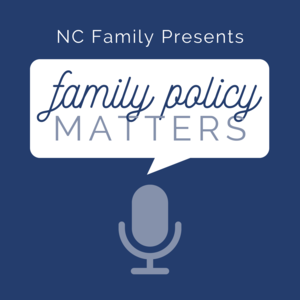Share This Episode

This broadcaster has 258 podcast archives available on-demand.
Keep up-to-date with this broadcaster on social media and their website.
August 17, 2020 1:59 pm
This week on Family Policy Matters, R.J. Snell of the Culture of Life Foundation, the Witherspoon Institute, and Princeton University joins host Traci DeVette Griggs to discuss the many ethical questions we are all facing during the current COVID-19 pandemic, such as seeing ourselves as isolated individuals and making sure all parts of a person are valued mentally, emotionally, and spiritually, not only physically.